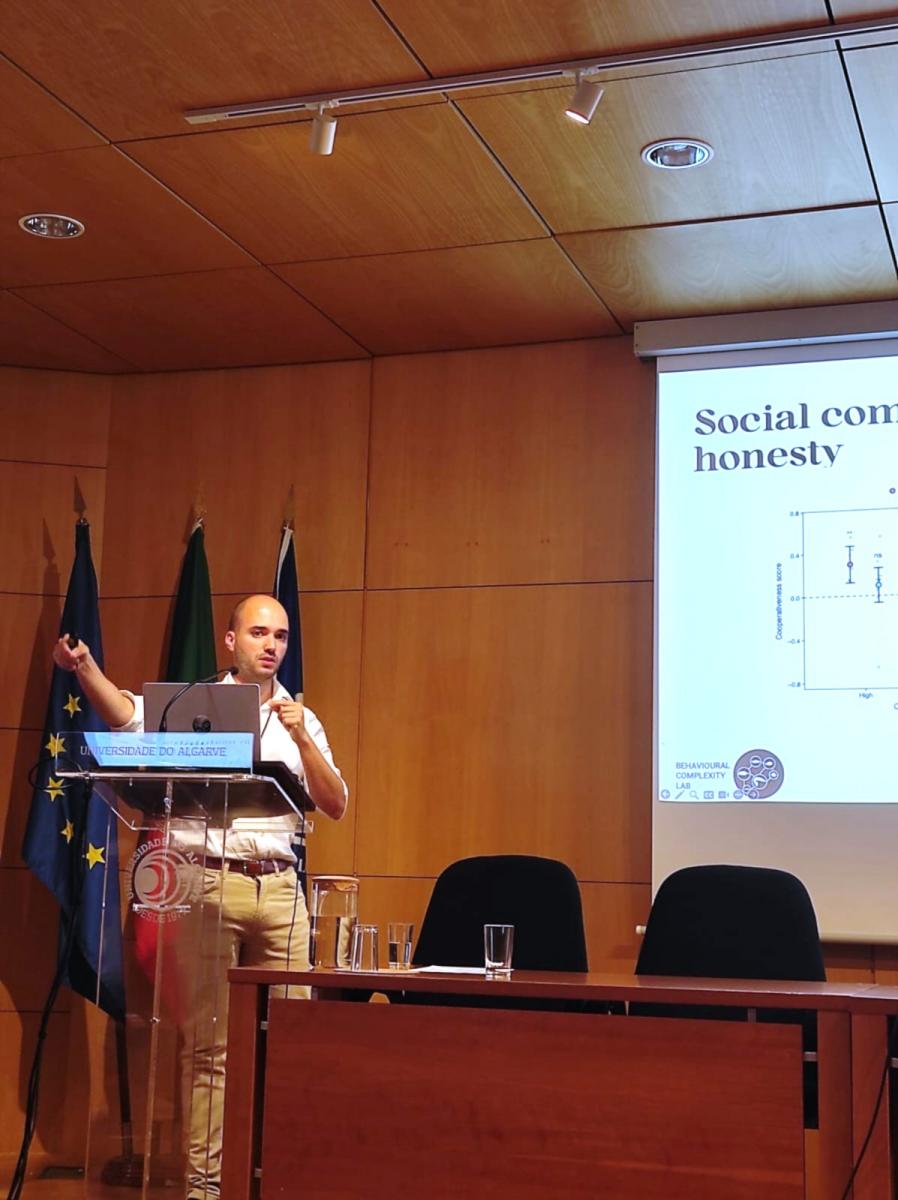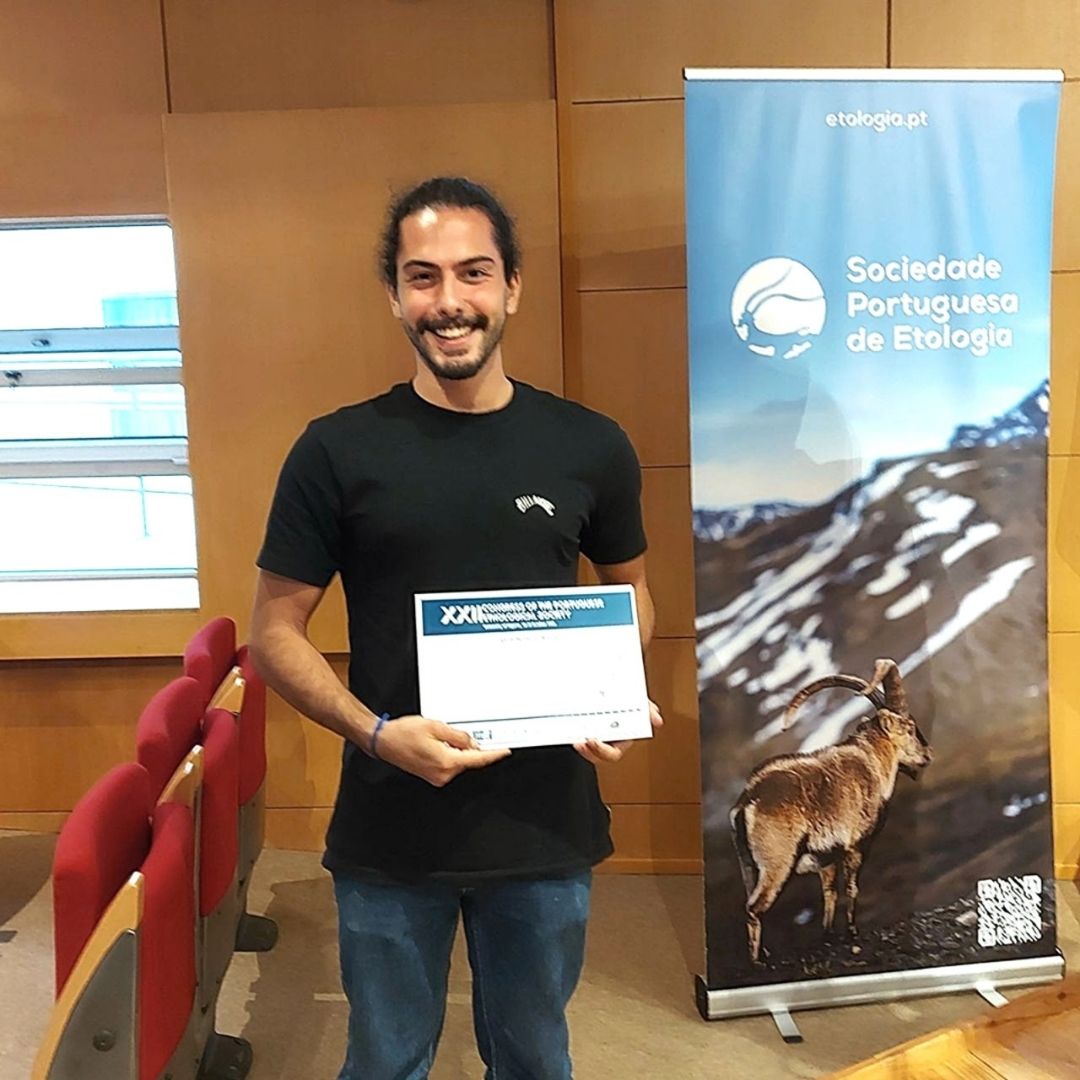MARE researchers strengthen national contribution at congress on animal behaviour
The 22nd Congress of the Portuguese Society of Ethology once again brought together researchers, students and experts for two days of debate and sharing on animal behaviour. MARE participated significantly, with presentations covering areas such as bioacoustics, cognition, ecology and environmental impacts. 
In his overall assessment of the meeting, José Ricardo Paula, President of SPE and researcher at MARE/ARNET at the Faculty of Sciences of the University of Lisbon (Ciências ULisboa), summarises the spirit experienced over the two days:
“The conference was, once again, a great success, with a very significant turnout and an excellent diversity of topics, ranging from behavioural ecology and neurobiology to ethics and animal welfare. I would highlight the atmosphere of a true scientific community, with a strong presence of young researchers and a clear commitment to interdisciplinarity.”
As a plenary speaker, José Ricardo Paula presented the session “The behavioural complexity of cleaning mutualisms”, dedicated to the behavioural, cognitive and ecological mechanisms that regulate interactions between cleaner fish and their clients.
The MARE research group in Fish Bioacoustics Sciences at ULisboa was represented by the work of researchers Manuel Vieira, Clara Amorim, Raquel Vasconcelos and students Pedro Coelho and Mariana Viegas. In the words of Manuel Vieira, who is also a member of the SPE board, ‘it was a fantastic opportunity for Pedro to present his work with seahorses and for him and Mariana to interact with other experts in the field.’
The researcher describes the conference as ‘marked by a good atmosphere and a wide range of science in the field of animal behaviour (...) full of interesting work, with fish dominating the presentations’, emphasising the importance of these meetings for ‘fostering collaborations in a more organic way’.
MARE's participation also extended to other areas of animal behaviour, with studies presented by MARE/ARNET researchers: Catherine Sheppard, Catarina Barros, Tânia Marquês, Maria Castro Mariano, Claudia Erber, Antony Pieter and Raquel Vasconcelos. These works addressed topics such as cognition in cleaner gobies, the effects of marine heatwaves on cleaner fish, the impact of artificial night light on cleaning mutualisms, the acoustics and activity of dolphins in the Tagus estuary, the social dynamics of dolphins off the south coast, and the effects of anthropogenic noise on different fish species.

The conference also included a highlight for MARE, with the Best Poster award going to researcher João Grave, a member of the MARE ULisboa behavioural complexity laboratory, for his work “Indirect effects of cleaner gobies on fish grazing and benthic community structure”.
As for the challenges facing animal behaviour research, José Ricardo Paula and Manuel Vieira highlight the lack of stable funding and structures to support it in the long term. Joana Castro, MARE/ARNET researcher at ULisboa Sciences, member of the SPE board and president of the Association for Marine Environment Research (AIMM Portugal), points out that, despite this, ‘the scientific community in animal behaviour research in Portugal is highly dynamic, which demonstrates the resilience and commitment of researchers to advancing knowledge and enhancing the value of this area’.
MARE/ARNET's presence at the conference highlighted not only the diversity and quality of the research carried out by the centre, but also the active role of its researchers in leading, promoting and strengthening the scientific community dedicated to the study of animal behaviour in Portugal.
To find out more, click HERE
Text by Vera Sequeira
